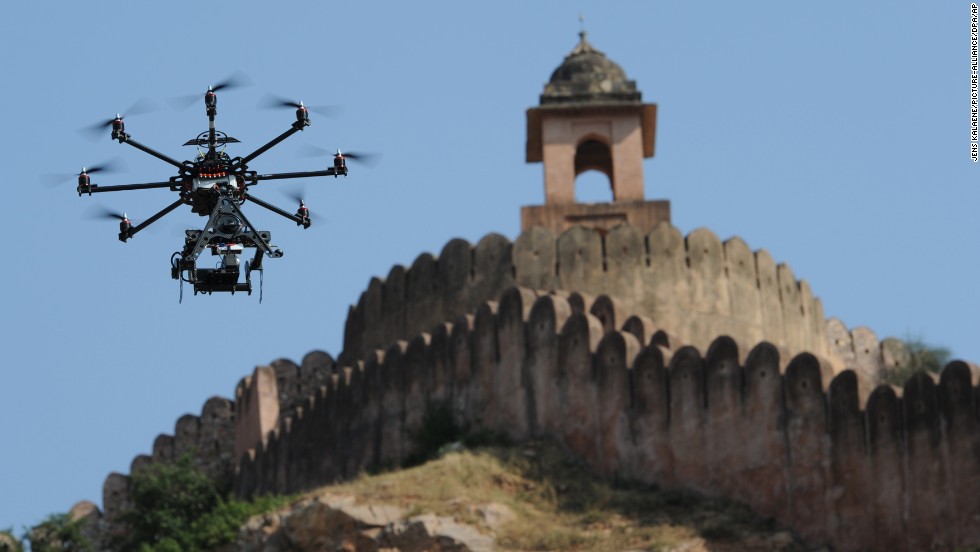In recent years, the advent of drones has transformed the landscape of surveillance, recreation, and even mail delivery. These unmanned aerial vehicles (UAVs) offer a plethora of possibilities, but with these innovations come pressing questions about privacy, safety, and legality. Imagine a drone hovering incessantly over your backyard, capturing every moment of your family’s life. A visceral feeling of unease might arise, leading to the ultimate question: Can you shoot down a drone flying over your house?
This question elicits a myriad of responses, often colored by personal experiences and deeply held beliefs about property rights and privacy. While the urge to protect your personal space is entirely natural, the ramifications of taking extreme measures, such as shooting down a drone, extend far beyond a mere violation of airspace. Let’s delve into the legal, ethical, and practical aspects of this complex issue.
Legally speaking, the skies above your property do not belong to you. In most jurisdictions, airspace is considered public domain. The Federal Aviation Administration (FAA) regulates the airspace and establishes rules that apply to all UAVs, regardless of whether they are piloted for recreational or commercial purposes. Shooting down a drone could be viewed as an act of vandalism or destruction of property, particularly if the drone belongs to someone else. Moreover, downing a drone poses the risk of injuring bystanders or damaging other properties, resulting in potential legal liability.
Nevertheless, many individuals find themselves grappling with the question of personal safety versus the encroachment of technology. Drones equipped with cameras can invade personal privacy, capturing images or videos without consent. This reality has sparked a growing sentiment among homeowners who feel powerless in their own backyards. The question isn’t just about legality; it speaks to fundamental issues of autonomy and self-protection, which many see as encumbered in an increasingly surveillance-oriented society.
While the legal landscape generally favors non-violent means of addressing the infringement of privacy, some states are beginning to contemplate legislation specifically addressing drone-related grievances. For instance, certain laws establish that operating a drone in a manner that violates the rights of individuals can lead to civil penalties. However, such laws often emphasize a need for restraint and focus more on recourse through civil suits rather than immediate confrontations.
Looking at the issue from a psychological lens reveals another layer of fascination. Humans have a deep-seated instinct for territory. The hive mentality rooted in the evolutionary history of humankind is still evident today. The instinct to protect one’s home, one’s castle, is perhaps more than just an emotional response; it’s a primal impulse. When faced with the sensation of being surveilled by a faceless drone, an individual may feel a visceral need to assert dominance over their domain. This leads to thoughts of aggressive action, like shooting down the drone, as a misguided form of reclaiming personal security.
Interestingly, debates on whether or not to shoot down a drone can evoke narratives of vigilante justice. In an era where technology is often perceived as outpacing ethical mores, many individuals grapple with the stakes of self-defense versus the law. The idea of taking matters into one’s own hands resonates in popular culture, where individuals rising against perceived wrongdoings is celebrated. However, the consequences of such retaliatory actions in real life often do not align with these romanticized notions.
Moreover, consider the potential implications of downing a drone. Unless one possesses firearms expertise and the necessary licenses, attempting to shoot down a drone can be exceedingly unsafe. Misfires or accidents could lead to serious bodily harm or even fatalities. Even if you successfully disable the drone, repercussions could range from police involvement to civil suits initiated by the drone’s owner, who may very well have been engaged in legitimate activities such as aerial photography or agricultural monitoring.
Yet, we must also ask whether there are alternative actions that can be taken. For those feeling threatened by a drone overhead, the first course of action should be obvious – open communication. Approaching the drone’s operator, if identifiable, allows for a dialogue about why the drone is present and expresses your feelings of discomfort. Respectful conversations often yield positive outcomes and can significantly reduce tensions.
Should the operator remain anonymous, consider documenting the drone’s presence first. Keep records of dates and times, along with photos, as these details can serve as a useful report should formal complaints need to be addressed either to drone regulatory authorities or local law enforcement. Remember, tackling the dilemma of drone privacy does not necessarily have to be an exercise in confrontation.
In conclusion, the question of shooting down a drone flying over your house is not merely about the act itself; it encapsulates a broader discourse on privacy, legality, and individual sovereignty. While the impulse to protect one’s territory is primal, it is essential to engage thoughtfully with the legality and rationale behind such actions. Reevaluating our relationship with technology and exploring alternative avenues to address grievances stands as a more constructive and ultimately safer approach. As drone technology continues to evolve, so too must our understanding of its implications, navigating the complexities of modern life with both caution and an informed perspective.
